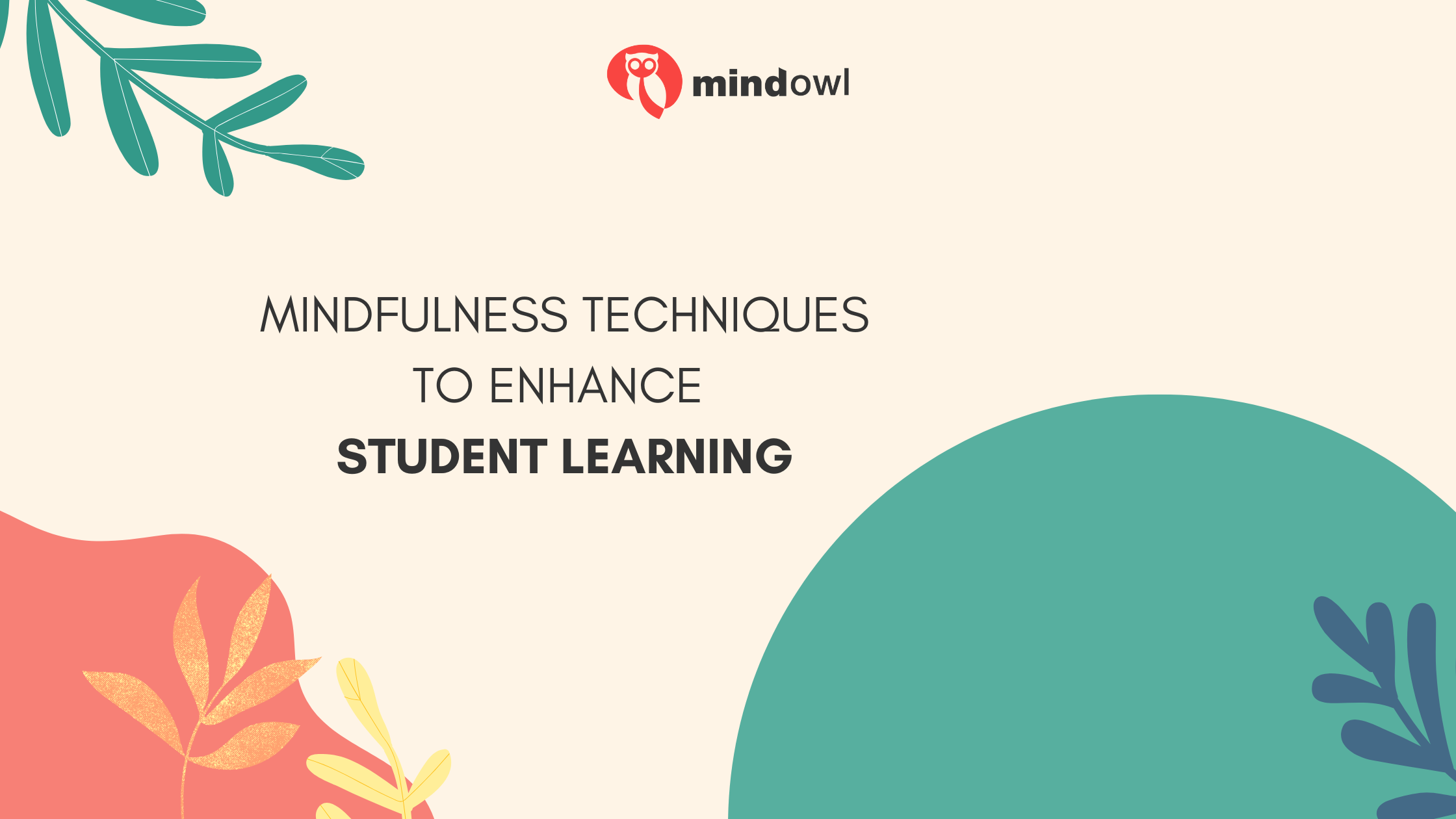
Is it true that incorporating mindfulness techniques can genuinely enhance student learning? You might find that practices like meditation and focused breathing not only improve concentration but also foster emotional resilience. As you consider how these methods can be integrated into daily academic routines, think about the potential benefits they could bring to your own learning environment. What if small adjustments in your approach could lead to significant improvements in focus and retention?
Understanding Mindfulness in Education
Mindfulness in education isn’t just a trend; research shows that incorporating mindfulness techniques can considerably enhance student learning and well-being. Understanding mindfulness within the educational context means recognizing it as a systematic approach to fostering awareness and presence in the moment.
You’re not merely teaching students to focus; you’re equipping them with skills that can transform their learning experiences. When you introduce mindfulness practices, you’re helping students cultivate emotional regulation and attention control. This shift can lead to improved focus and retention of information.
Mindfulness encourages self-awareness, allowing students to identify their thoughts and feelings, which is essential for academic performance and personal growth. Moreover, integrating mindfulness into your curriculum promotes a supportive classroom environment.
When students feel safe and understood, they’re more likely to engage and take risks in their learning. You’ll notice that fostering a culture of mindfulness can lead to greater empathy and collaboration among peers.
As you explore these concepts in your teaching practice, remember that the goal is to create a holistic educational experience that nurtures not only academic success but also emotional and social well-being.
Benefits of Mindfulness for Students
Numerous studies highlight the considerable benefits of mindfulness for students, demonstrating its impact on various aspects of their academic and personal lives. By practicing mindfulness, you can improve your focus and concentration, which directly enhances your learning experiences. Research shows that mindfulness increases your ability to retain information and perform better on exams, as it helps reduce distractions and promotes a clearer mindset.
Moreover, mindfulness practices can considerably decrease stress and anxiety, common challenges faced by students. When you engage in mindfulness, you develop greater emotional regulation, enabling you to handle academic pressures more effectively. This emotional resilience not only supports your mental health but also fosters a more positive attitude toward learning.
Additionally, mindfulness encourages self-awareness, allowing you to understand your strengths and weaknesses better. This self-knowledge can guide your study habits and personal development, leading to more effective learning strategies tailored to your needs.
Ultimately, embracing mindfulness can cultivate a balanced approach to education, where you not only excel academically but also nurture your overall well-being. By integrating mindfulness into your routine, you’re setting the stage for a more fulfilling and successful educational journey.
Simple Meditation Practices
Practicing simple meditation techniques can greatly enhance your focus and emotional well-being as a student. Research shows that even a few minutes of meditation each day can lead to improved attention, reduced stress, and greater emotional regulation.
One effective method is mindfulness meditation, where you sit quietly and pay attention to your thoughts and feelings without judgment. This practice helps you become more aware of distractions and builds your capacity to focus on your studies.
Another technique is guided visualization, where you imagine a peaceful scene or scenario. This not only relaxes your mind but also creates a mental space for creativity and problem-solving. You can find numerous resources online with guided sessions tailored for students.
Finally, you might try loving-kindness meditation, which involves silently repeating phrases of goodwill toward yourself and others. This practice fosters empathy and can improve your relationships with peers, enhancing your learning environment.
Incorporating these simple practices into your daily routine can considerably contribute to your overall academic success and emotional resilience.
Breathing Exercises for Focus
Breathing exercises can markedly enhance your focus, especially during long study sessions or when facing overwhelming assignments. Research indicates that controlled breathing can considerably reduce stress and improve cognitive function.
When you engage in focused breathing, you activate the parasympathetic nervous system, which promotes relaxation and clarity. To get started, try the 4-7-8 technique: inhale through your nose for a count of four, hold your breath for seven counts, and exhale slowly through your mouth for eight counts.
This method not only calms your mind but also sharpens your concentration. You’ll notice that after just a few rounds, distractions fade, allowing you to tackle your studies more effectively.
Moreover, regular practice can lead to long-term benefits. Studies show that students who incorporate breathing exercises into their routines report heightened awareness and improved academic performance—benefits that extend to those enrolled in an online school k-12, where self-regulation and focus are especially important.
Incorporating Mindful Movement
Incorporating mindful movement into your study routine can greatly enhance both physical well-being and mental clarity. Research shows that engaging in movement with awareness can reduce stress, improve focus, and boost your overall cognitive performance. By dedicating just a few minutes to mindful movement, you can create a more conducive environment for learning.
- Increases blood flow to the brain, enhancing cognitive function
- Reduces anxiety and promotes emotional well-being
- Encourages a positive mindset, fostering resilience
- Improves posture and physical health, reducing discomfort during study sessions
You don’t have to commit hours to practice; simple stretches, yoga, or even brief walks can notably impact your concentration and retention. As you move, focus on your breath and the sensations in your body. This connection helps you stay present and engaged, allowing for deeper learning.
Incorporating these practices into your study sessions not only refreshes your mind but also helps you absorb information more efficiently. By prioritizing mindful movement, you create a balance between body and mind, setting a strong foundation for academic success.
Creating a Mindful Study Environment
Creating a mindful study environment is essential for enhancing your focus and retention. Research shows that a clutter-free space can greatly reduce distractions, allowing you to concentrate better. Start by organizing your study area; remove unnecessary items that might divert your attention.
Next, consider the sensory aspects of your environment. Lighting plays a vital role in maintaining your energy levels. Natural light is ideal, but if that’s not an option, opt for warm, soft lighting to create a calming atmosphere.
Additionally, incorporating plants can boost your mood and improve air quality, further aiding concentration.
Sound also impacts your ability to study mindfully. If silence feels oppressive, try playing soft instrumental music or nature sounds. These can enhance focus without overwhelming your senses.
Conclusion
Incorporating mindfulness techniques into your study routine is like tending to a garden. Just as plants flourish with the right care, your mind thrives when nurtured with focus and calm. Research shows that students who practice mindfulness experience up to a 30% increase in retention. By embracing these techniques, you cultivate a rich learning environment, allowing your academic performance to bloom. So, take a deep breath, center yourself, and watch your potential unfold.
MindOwl Founder – My own struggles in life have led me to this path of understanding the human condition. I graduated with a bachelor’s degree in philosophy before completing a master’s degree in psychology at Regent’s University London. I then completed a postgraduate diploma in philosophical counselling before being trained in ACT (Acceptance and commitment therapy).
I’ve spent the last eight years studying the encounter of meditative practices with modern psychology.

